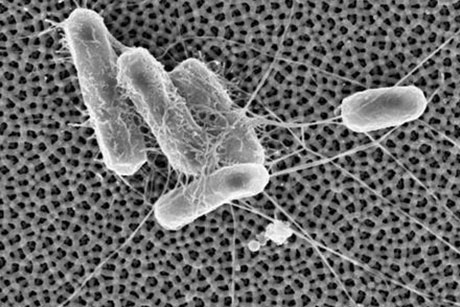Scientists developing Teflon for bacteria
In much the way Teflon keeps food from sticking to your pots and pans, a new nanotechnology developed by scientists at Cornell University could keep bacteria from sticking to medical equipment, food processing machinery and much more.
Researchers from Cornell University and Rensselaer Polytechnic Institute used a process called anodization -- in which metal is treated with chemicals and hit with an electric current in order to change the properties of its surface -- to create a piece of bacteria-resistant aluminum.
The anodization process formed alumina, a layer of nanoscale pores -- thousands of times smaller than the width of a piece of paper -- that prevented E. coli and Listeria bacteria from attaching to it.
Moraru said that anodized metals could be used to prevent adhesive buildups of bacteria in biomedical clean rooms, on equipment parts that are hard to reach or clean, and even on cargo ships to keep their hulls free of algae.
One of the most obvious applications is in food processing, where microbial outbreaks can make thousands sick and the use of antibacterial agents is limited to those which will not affect or get into the food itself.
"It's probably one of the lowest-cost possibilities to manufacture a nanostructure on a metallic surface," said Carmen Moraru, associate professor of food science and the paper's senior author. "The food industry makes products with low profit margins. Unless a technology is affordable it doesn't stand the chance of being practically applied."
The study was published in the journal Biofouling. The researchers hope to find other metals that can be used for this purpose and plan to investigate the "repulsive effect" on additional bacteria.
